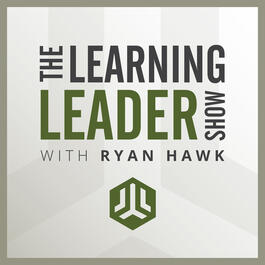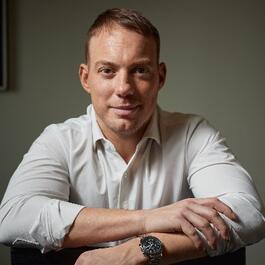
371: Maria Konnikova - How To Pay Attention, Master Yourself, & Win
The Learning Leader Show With Ryan Hawk Text LEARNERS to 44222 Full show notes are at www.LearningLeader.com #371: Maria Konnikova - Maria Konnikova is the author of two New York Times bestsellers, The Confidence Game, winner of the 2016 Robert P. Balles Prize in Critical Thinking, and Mastermind: How to Think Like Sherlock Holmes, an Anthony and Agatha Award finalist. Her new book, The Biggest Bluff, will be out from Penguin Press on June 23, 2020. She is a regularly contributing writer for The New Yorker whose writing has won numerous awards, including the 2019 Excellence in Science Journalism Award from the Society of Personality and Social Psychology. While researching The Biggest Bluff, Maria became an international poker champion and the winner of over $300,000 in tournament earnings—and inadvertently turned into a professional poker player. Maria's writing has been featured in Best American Science and Nature Writing and has been translated into over twenty languages. Notes: Sustaining excellence = Genuine interest in what they do for a living They follow their curiosity - "It's not about wanting to make a shit load of money." Passionate "They work their asses off" - They work a lot. It doesn't just happen. "Follow your curiosity and obsessions with great rigor." - Brian Koppelman Why write a book about poker when you've never played before? "I wanted to write about chance and the role luck plays in our life." Game theory stemmed from poker Poker is about strategic decision making Why poker? "Poker is a powerful tool to metabolize the luck that surrounds us, and a way to become comfortable with something that is not only all too applicable to our current situation, but extremely difficult for the human mind to process: uncertainty." Erik Seidel became Maria's personal coach/mentor "There's no one like him." He's stood the test of time. He's been successful at poker for decades... He's evolved with the changes of the game, made adjustments and has won. He's kind and humble. Tips on asking for someone to mentor you: Do your homework - Read everything there is to know about the person before contacting them Be specific with your ask Make sure you know why this person should be your mentor Figure out what's in it for them Find someone who can help amplify your strengths Don't write a novel in the first email or DM - Get to the point quickly If you can get an in person meeting, do it NEVER say: "Can I pick your brain?" Why playing poker is comparable to writing: Both are deceptively simple on the surface. Anyone can do either, but to do either well in the long term, a certain mastery is needed. Both are subject to the Dunning-Kruger effect, which means that the more someone knows, the more they realize how much they don't know on a topic, while someone with little knowledge tends to be falsely confident about their understanding of a topic Meta-cognitive process - "I great more aware of my thinking." You must reflect before reacting. Poker helps you to practice this valuable skill. Make decisions after going through a process of reflection List the things you need to be attentive to What are the relevant factors? What should I be paying attention to? Write it down In order to make better decisions, you must be able to identify your process The ultimate goal of poker and life is to make the optimal decision in that moment The best poker players work incredibly hard: They study hands, they talk hands over with other bros, they watch video, they dissect hands. They build up their self control and their emotional regulation What Maria learned from playing a lot of tournament poker? "It is an extreme sport. You can't take breaks. You're put in a pressure cooker for hours and must make the right decision." "I had internalized gender stereotypes. I was letting myself be bullied. I'd take less active lines because I was scared. I had to overcome that and still need to work on it." Advice: "Work hard. Life gives you nothing. Everything is earned. Life isn't fair. You must work for it. Saying life isn't fair isn't good for you. Think: 'What can I do about it? What can I control?'" Follow your curiosity Read, Read, Read. Read poetry and read fiction
From "The Learning Leader Show With Ryan Hawk"




Comments
Add comment Feedback